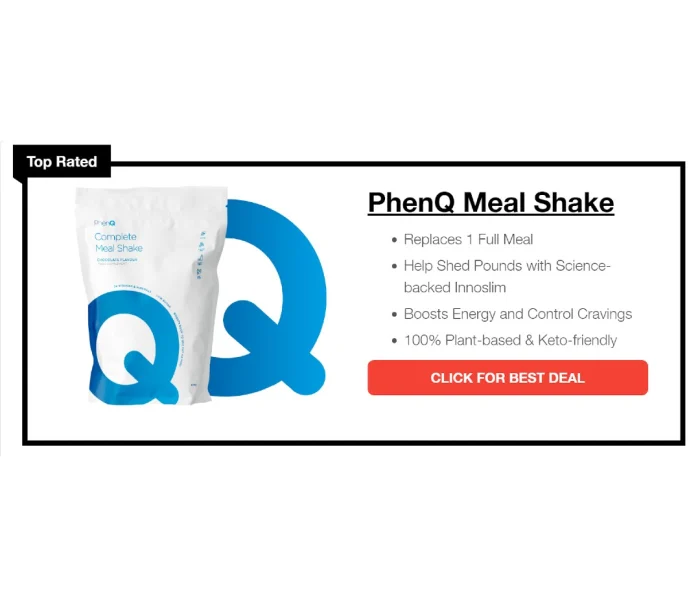Intermittent Fasting
Contents
- 1 Intermittent Fasting
- 2 The Science of Feasting and Fasting
- 3 Insulin Regulation:
- 4 Glucagon’s Role:
- 5 Cellular Repair and Renewal:
- 6 Metabolic Changes During Intermittent Fasting
- 7 Methods of Intermittent Fasting
- 8 Popular Intermittent Fasting Methods
- 9 Power of Intermittent Fasting
- 10 Case Study 1: Sarah’s Success Story
- 11 Case Study 2: David’s Journey with Prediabetes
- 12 Case Study 3: Grandma Mary’s Active Lifestyle
- 13 Case Study 4: Mark’s Sharper Focus
- 14 Potential Benefits of Intermittent Fasting
- 15 Important Considerations Before You Begin
- 16 Embracing Intermittent Fasting
- 17 Building a Support Network:
- 18 Utilizing Apps and Tracking Tools:
- 19 Prioritizing Meal Planning:
- 20 Mindful Eating Practices:
- 21 Celebrating Non-Scale Victories:
- 22 A Look Towards the Future
- 23 Optimizing IF for Different Populations:
- 24 Unraveling the Molecular Mechanisms:
- 25 Combining IF with Other Lifestyle Modifications:
- 26 Conclusion
- 27 Frequently Asked Questions (FAQs) about Intermittent Fasting (IF)
- 28 References
As we strive for a healthier lifestyle, the allure of a simple yet effective approach is undeniable. Intermittent fasting (IF) has emerged as a frontrunner, capturing attention with its focus on when we eat rather than what we eat. But is it just a fad, or does it hold real potential for lasting health benefits? In this comprehensive exploration, we’ll delve into the science behind IF, explore its diverse methods, analyze its potential benefits with real-world case studies, and address crucial considerations before you embark on this dietary journey.
You Will Love To Read: Ramadan and Eating Disorders | Ultimate Guide for Muslims
The Science of Feasting and Fasting
Our bodies are intricately designed to adapt to various eating patterns. Traditionally, humans likely experienced periods of feast and famine throughout our evolutionary history. Intermittent fasting replicates this cycle, inducing a metabolic switch that alters how our bodies utilize energy. Here’s a breakdown of the key physiological changes that occur during fasting windows:
Insulin Regulation:
When we eat, our bodies release insulin, a hormone that shuttles glucose (blood sugar) from the bloodstream into cells for energy. During a fast, insulin levels plummet. This forces the body to seek alternative energy sources, leading to the breakdown of glycogen (stored glucose) in the liver and muscles.
Glucagon’s Role:
Glucagon, a counterpoint to insulin, rises during fasting. It signals the liver to release ketones, an alternative energy source produced from stored fat. This metabolic shift from glucose dependence to fat burning is a hallmark of intermittent fasting.
Cellular Repair and Renewal:
Studies suggest that fasting periods may trigger autophagy, a cellular housekeeping process that removes damaged cells and promotes regeneration. This process may contribute to the potential anti-aging effects associated with IF.
Metabolic Changes During Intermittent Fasting
| Hormone | Function During Eating Window | Function During Fasting Window |
| Insulin | Lowers blood sugar by shuttling glucose into cells | Levels rise, signaling the liver to release ketones for energy |
| Glucagon | Low levels | Levels rise, signaling liver to release ketones for energy |
Methods of Intermittent Fasting

The beauty of IF lies in its flexibility. There’s no single “right” way to do it. Here’s an overview of some popular methods:
- Time-Restricted Feeding (TRF): This method focuses on compressing your daily eating window into a specific timeframe. The most popular variation is the 16/8 method, which involves fasting for 16 hours and restricting your eating to an 8-hour window. For instance, you could skip breakfast and eat your meals between noon and 8 pm.
- The 5:2 Diet: This approach involves eating normally for 5 days of the week and restricting calorie intake (around 500-600 calories) on 2 non-consecutive days. This method offers more flexibility in scheduling your fasting days.
- Eat Stop Eat: This method involves a 24-hour fast once or twice a week, with normal eating patterns on non-fasting days. This approach can be particularly effective for those seeking a more structured approach with longer fasting intervals.
Popular Intermittent Fasting Methods
| Method | Description | Example |
| Time-Restricted Feeding (TRF) | Compress daily eating window | 16/8 method: Fast for 16 hours, eat within 8-hour window (e.g., skip breakfast, eat between noon and 8 pm) |
| 5:2 Diet | Eat normally for 5 days, restrict calories (500-600) on 2 non-consecutive days | Flexible scheduling of fasting days |
| Eat Stop Eat | 24-hour fast once or twice a week | Structured approach with longer fasting intervals |
Power of Intermittent Fasting
The growing body of research suggests that IF can positively impact various aspects of health. Let’s delve into some of the most promising benefits, supported by real-world case studies:
- Weight Management: A 2020 meta-analysis published in the International Journal of Obesity [1] reviewed 25 studies on IF and weight loss. The results showed that IF was as effective as traditional calorie restriction diets for weight loss, with participants experiencing an average weight loss of 3-8% of their body weight.
Case Study 1: Sarah’s Success Story
Sarah, a busy marketing professional, struggled with yo-yo dieting for years. After discovering IF, she adopted the 16/8 method. “Skipping breakfast and focusing on healthy meals during my 8-hour window was surprisingly easy,” she says. “Within 3 months, I’ve lost 10 pounds and feel more energized throughout the day.”
- Improved Blood Sugar Control: A 2017 study published in the journal Cell Metabolism [2] investigated the effects of IF on blood sugar control in pre-diabetic individuals. The study found that IF significantly improved insulin sensitivity and reduced fasting blood sugar levels compared to a control group following a traditional calorie-restriction diet.
Case Study 2: David’s Journey with Prediabetes
David, a 55-year-old with a family history of type 2 diabetes, was diagnosed with prediabetes. His doctor recommended trying IF to manage his blood sugar. “I opted for the 5:2 approach,” David explains. “On fasting days, I focus on low-carb, high-protein meals. My blood sugar readings have improved significantly, and I feel more confident about managing my prediabetic condition.”
- Potential for Longevity: Studies in animals suggest that calorie restriction, a practice that mimics some aspects of IF, can extend lifespan. While human research is ongoing, a 2019 review published in The New England Journal of Medicine [3] suggests that IF may promote healthy aging by reducing inflammation and oxidative stress, both linked to age-related diseases.
Case Study 3: Grandma Mary’s Active Lifestyle
Mary, an energetic 78-year-old, attributes her vitality partly to her long-term practice of IF. “I’ve been following a modified 16/8 method for over 20 years,” she shares. “Skipping breakfast allows me to focus on healthy meals throughout the day. I feel this approach has kept me active and disease-free.” (It’s important to note that individual experiences may vary, and consulting a doctor before starting IF at any age is crucial.)
- Enhanced Cognitive Function: Research suggests a potential link between IF and improved cognitive function. A 2018 study published in Nature Reviews Neuroscience [4] found that IF may enhance memory and learning in animal models. While human studies are needed, this finding holds promise for promoting brain health.
Case Study 4: Mark’s Sharper Focus
Mark, a software developer, has noticed a positive impact on his focus since adopting IF. “I used to experience afternoon slumps after lunch,” he says. “Now, with the 5:2 approach, I feel sharper and more concentrated throughout the day, especially during fasting windows.”
Potential Benefits of Intermittent Fasting
| Benefit | Description |
| Weight Management | Intermittent fasting may promote weight loss by restricting calorie intake during fasting windows. By creating a calorie deficit, it can lead to the burning of stored fat for energy, aiding in weight management. Additionally, intermittent fasting may help regulate hormones involved in metabolism, such as insulin, which can further support weight loss efforts. |
| Improved Blood Sugar Control | Intermittent fasting may enhance insulin sensitivity, allowing cells to more effectively take up glucose from the bloodstream. This can lead to improved blood sugar control and reduced insulin resistance, which are beneficial for overall health and may lower the risk of type 2 diabetes. Fasting periods also give the pancreas a break from producing insulin, which could help regulate blood sugar levels over time. |
| Potential for Longevity | Intermittent fasting may promote healthy aging by reducing inflammation and oxidative stress. Studies suggest that fasting can activate cellular repair processes and improve the body’s ability to cope with stress, which may contribute to a longer lifespan. By reducing the risk of chronic diseases associated with aging, such as heart disease and cancer, intermittent fasting could potentially extend life expectancy. |
| Enhanced Cognitive Function | Early research suggests intermittent fasting may have potential benefits for cognitive function, including improved memory and learning. Fasting may stimulate the production of brain-derived neurotrophic factor (BDNF), a protein that plays a role in nerve cell growth and function. This could enhance synaptic plasticity and increase the formation of new neurons, which are essential for learning and memory processes. |
Important Considerations Before You Begin
While IF offers a range of potential benefits, it’s not a one-size-fits-all approach. Here are some crucial factors to consider:
- Underlying Health Conditions: Consult your doctor before starting IF if you have any underlying health conditions, such as diabetes, eating disorders, or are pregnant or breastfeeding. Certain medications may interact with fasting periods, so discussing your plan with a healthcare professional is essential.
- Individual Needs: Listen to your body. Initial side effects like fatigue or hunger pangs are common during the first few weeks. Adjust the method or discontinue if it doesn’t suit you.
- Hydration: Staying adequately hydrated is crucial during fasting windows. Water, unsweetened black coffee, and herbal teas are excellent choices.
- Nutrient-Dense Meals: During eating windows, focus on consuming whole, unprocessed foods rich in essential nutrients to ensure your body receives what it needs to thrive.
Embracing Intermittent Fasting
The journey of intermittent fasting can be incredibly rewarding, but it’s also normal to encounter challenges along the way. Here are some resources and strategies to support you on your path:
Building a Support Network:
Surround yourself with others who are also practicing IF. Online forums, social media groups, or even connecting with friends or family members interested in trying IF can provide valuable encouragement and a sense of community. Sharing experiences, tips, and recipes can make the process more enjoyable and keep you motivated.
Utilizing Apps and Tracking Tools:
Several apps and online tools can help you track your fasting windows, monitor your progress, and access educational resources about IF. These tools can be particularly helpful during the initial adjustment period when establishing a routine is key.
Prioritizing Meal Planning:
Planning your meals during eating windows can prevent unhealthy choices and ensure you’re getting the right nutrients. Explore cookbooks or online resources specifically designed for intermittent fasting to discover delicious and healthy recipes that fit your dietary needs and preferences.
Mindful Eating Practices:
During your eating windows, practice mindful eating to promote satiety and prevent overeating. Focus on savoring each bite, eating slowly, and stopping when you feel comfortably full. This approach can help you maintain a healthy relationship with food within the context of IF.
Celebrating Non-Scale Victories:
While weight loss might be a goal, focus on celebrating all the positive changes you experience with IF. This could include increased energy levels, improved sleep quality, better focus, or a reduction in inflammation-related symptoms. Acknowledging these non-scale victories can keep you motivated on your journey.
A Look Towards the Future
The scientific exploration of intermittent fasting is a rapidly evolving field. Here are some exciting areas of ongoing research:
Optimizing IF for Different Populations:
Researchers are investigating how to tailor IF protocols for specific age groups, health conditions, and even athletic performance. This personalization will allow for a more targeted approach to maximizing the benefits of IF.
Unraveling the Molecular Mechanisms:
Scientists are delving deeper into understanding the biological pathways by which IF exerts its positive effects. This knowledge will pave the way for the development of interventions that mimic the benefits of IF without requiring dietary restrictions.
Combining IF with Other Lifestyle Modifications:
Research is exploring the synergistic effects of combining IF with other healthy habits like exercise, sleep hygiene, and stress management. This holistic approach might hold the key to unlocking even greater health benefits.
Conclusion
Intermittent fasting presents a powerful and flexible dietary approach with the potential to transform your health and well-being. By strategically cycling between eating and fasting windows, you can unlock a range of benefits, from weight management and improved blood sugar control to enhanced cognitive function and potentially a longer lifespan.
Remember, consistency, a focus on whole, unprocessed foods, and prioritizing your body’s needs are key to maximizing the potential of this dietary approach. Embrace the support of a community, explore resources to guide your journey, and celebrate all your victories along the way. As you embark on this path to a healthier you, remember that intermittent fasting is not a quick fix, but rather a sustainable lifestyle shift with the potential to unlock a lifetime of well-being.
Disclaimer: This article is for informational purposes only and should not be interpreted as medical advice. Always consult with a qualified healthcare professional before making any changes to your diet or lifestyle.
Frequently Asked Questions (FAQs) about Intermittent Fasting (IF)
- Is IF safe for everyone?
Intermittent fasting can be a safe and effective approach for many people. However, it’s crucial to consult with your doctor before starting IF, especially if you have any underlying health conditions such as diabetes, eating disorders, or are pregnant or breastfeeding. Certain medications may interact with fasting periods, so discussing your plan with a healthcare professional is essential.
- Will I lose muscle mass with IF?
Studies suggest that IF when combined with a balanced diet that includes adequate protein intake, does not lead to significant muscle loss [9].
- What should I drink during fasting windows?
Water, unsweetened black coffee, and herbal teas are excellent choices during fasting windows. Avoid sugary drinks that can break your fast.
- I feel tired and sluggish during my fasting window. What should I do?
These are common side effects during the initial adjustment period. Ensure you’re staying adequately hydrated. You may also need to adjust your chosen fasting method or break your fast if the side effects become severe. Listen to your body and prioritize your well-being.
- How long does it take to see results with IF?
The timeframe for noticeable results can vary depending on factors like weight loss goals, body composition, and chosen IF method. Consistency is key. Some people experience weight loss within a few weeks, while others may see more gradual changes. Focus on non-scale victories like improved energy levels or better sleep alongside monitoring weight changes.
- Can I combine IF with exercise?
Yes, combining IF with exercise can be a powerful strategy for overall health improvement. However, it’s important to listen to your body and adjust your exercise routine as needed during fasting windows. Consider lower-intensity workouts during fasting periods and prioritize protein intake for muscle recovery.
References
- Intermittent fasting versus calorie restriction for weight loss and cardiometabolic health in adults: URL
- Effects of intermittent fasting on glucose regulation in individuals with prediabetes: URL
- Targeting aging with dietary interventions: the update from the Comprehensive Geriatric Assessment network: URL
- Intermittent fasting: the neuroprotective effect: URL
- Intermittent fasting differentially modulates inflammation and immunity in lean and obese mice: URL
- Effects of intermittent or continuous calorie restriction on the risk factors for coronary heart disease in overweight or obese men and women: URL
- The emerging role of autophagy in aging and age-related diseases: URL
- Intermittent fasting improves memory and hippocampal plasticity in aged mice: URL
- The effects of intermittent or continuous calorie restriction on body composition and energy expenditure in overweight or obese men and women: URL


